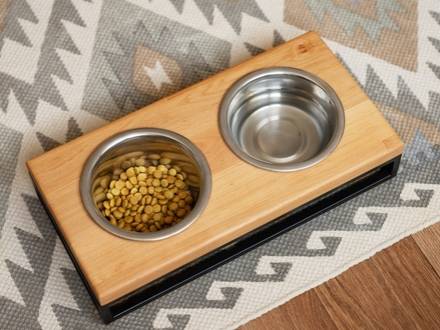How Are Companion Animals Handled in a Grey Divorce?
 For couples divorcing after decades of marriage, some of the most emotional issues are not about retirement accounts or the house. They are about the dog that a couple has shared for many years, which provides badly needed support and comfort.
For couples divorcing after decades of marriage, some of the most emotional issues are not about retirement accounts or the house. They are about the dog that a couple has shared for many years, which provides badly needed support and comfort.
In grey divorce — the term used for divorce after age 50 — companion animals often take on deeper meaning. Adult children may be long out of the house and grandchildren might live far away. That animal may be someone’s closest source of daily comfort. So, when a marriage ends, deciding who keeps the pet can be just as difficult as dividing any other form of marital property.
Fortunately, you do not have to figure out the answers to this and other questions on your own. Our experienced team of Yorkville, IL senior divorce attorneys is here to help.
Illinois Divorce Law Recognizes Pets as More Than Property
Until recently, Illinois courts treated pets the same as a piece of furniture or a car. But that changed in 2018, when Section 503(n) of the Illinois Marriage and Dissolution of Marriage Act began allowing courts to consider the well-being of companion animals when determining ownership.
This means that instead of simply awarding the dog to whoever’s name is on the adoption papers or vet bills, the court can now consider who has been the primary caretaker, who is best positioned to care for the animal going forward, and whether the animal has a stronger emotional bond with either spouse. In some cases, courts may even grant joint ownership, though that can be hard to enforce and is not always practical.
Grey divorce attorneys increasingly see companion animal disputes in cases involving long-term marriages, especially where the pet has been a major source of companionship during retirement or health struggles.
Factors That May Influence Who Gets the Pet in a Divorce
Courts do not use the same "best interest of the child" standard for pets, but they are allowed to consider what is in the animal’s best interest when awarding sole or joint possession. Relevant factors include:
-
Which spouse provided most of the daily care, including feeding, grooming, walking, and vet visits
-
Whether the animal was acquired before or during the marriage
-
Each spouse’s living situation post-divorce, including pet restrictions at housing or ability to provide pet care
-
Emotional attachment and whether one spouse used the pet to control or manipulate the other
Can You Create a Pet Custody Agreement in Your Divorce?
If you and your spouse can agree on a plan, such as shared visitation, rotating weeks, or keeping one pet each if there are multiple animals, that agreement can be made part of your divorce judgment. A clear, written arrangement avoids the cost, uncertainty, and emotional toll of litigating pet custody in court.
Contact a Kendall County, IL Grey Divorce Attorney
If you are navigating a grey divorce and need guidance on how your pets will be handled, contact a Yorkville, IL grey divorce attorney at Divorce Over 50 - Goostree Law Group for a free consultation. Call 630-634-5050 today to protect what matters most to you.
 630-634-5050
630-634-5050










